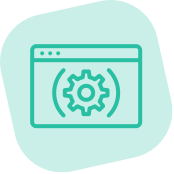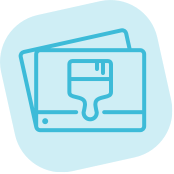Optimization
Now, more than ever, fine-tuning the speed of your site is crucial. Search engine demands for faster results are a direct correlation to user demands for instant answers. If you can provide the fastest feedback you can rise in the rankings.
Website optimization is nothing new. For years it’s been a smart practice to have your pages load as quickly as possible. We have short attention spans and they are continuing to shorten as time goes on. Now the search engines are adapting to our changing needs and rewarding speed improvements with higher rankings.
Start with a Site Review
A site review is the normal starting point for optimization work. You may have an idea that your website is performing poorly or you might have an email from Google indicating an optimization issue. However, without quantifying the problem it’s hard to prescribe a solution.
Planning for Optimization
Once you have a list of recommendations to work from, the next step is to determine if any of them are critical to the health of the site. These should be addressed first. Then we’ll typically prioritize the work trying to achieve the most impact for the smallest effort, but also keeping logical groupings in mind. You may want to evaluate the results as you progress through the optimization phases to gauge the inflection point of the effort. Some changes are going to provide a big impact and some are going to provide smaller results.
Keeping Your Site Optimized
After you work through the items that were slowing you down you may think you’re done. Performing routine optimization checks can make a lot of sense. As you’re adding new content or functionality to your site you may be changing how the site behaves. Adding a large background image area can cause problems if you haven’t optimized images appropriately. Additionally, technology is always changing and new tools can create better paths to faster pages. Search engine algorithms are constantly changing as well. What was considered a best practice last month may not be next month.
Pixel Jar excels at troubleshooting and building new features that are light and fast. When they build stuff the code is clean.

Jack Coble
Owner, Pilatesology
Got questions that need answers? Get in touch today!
Not sure if Optimization is right for you?
You may also be interested in…

Site Development
You tell us your vision, and we bring it to life, working closely with you to ensure your new website reflects who you are.

Site Support
No website is one-and-done – you need constant maintenance, security, and ongoing updates to ensure optimal performance. We take care of that for you.

WordPress Themes
What does your WordPress Theme say about you? We develop custom themes that are tailored to your business or adapt existing ones to better suit your needs.

Consulting
Are you getting the most out of your web presence? We draw on years of experience to develop strategies and implementation plans to maximize your impact online.
Download Our DIY Site Review Guide
We’ve been carrying out reviews for years and have it down to a science. Gain access to our years of experience with our whitepaper: “How to Perform a Website Audit.” Enter your information below to get immediate access to this detailed 20-page guide to understanding and improving your website.
